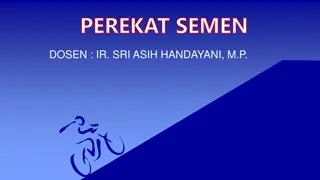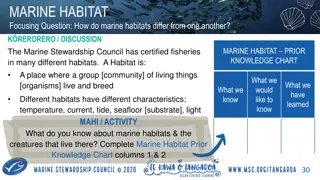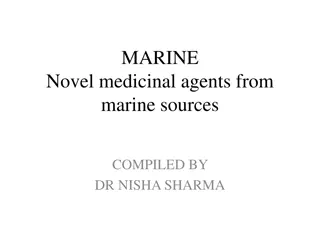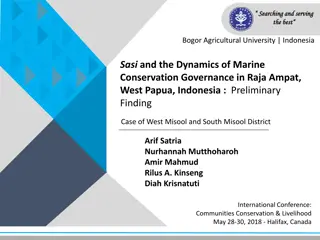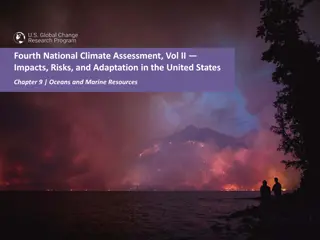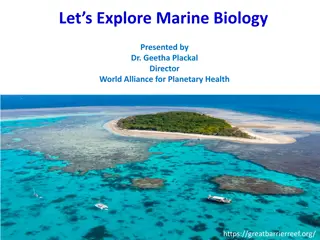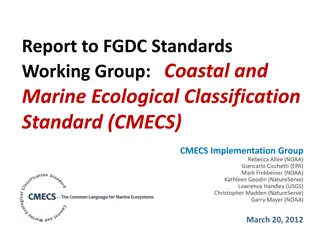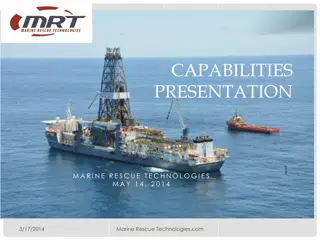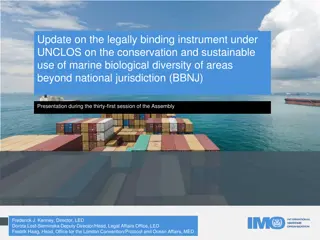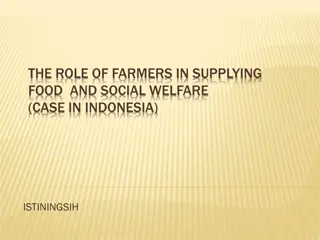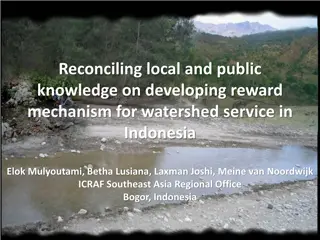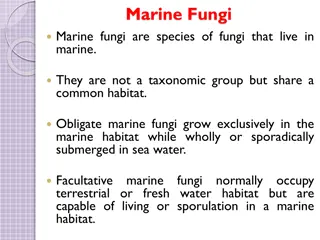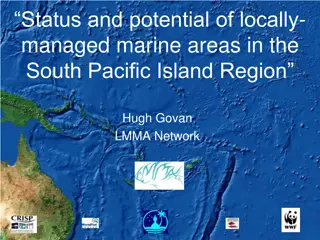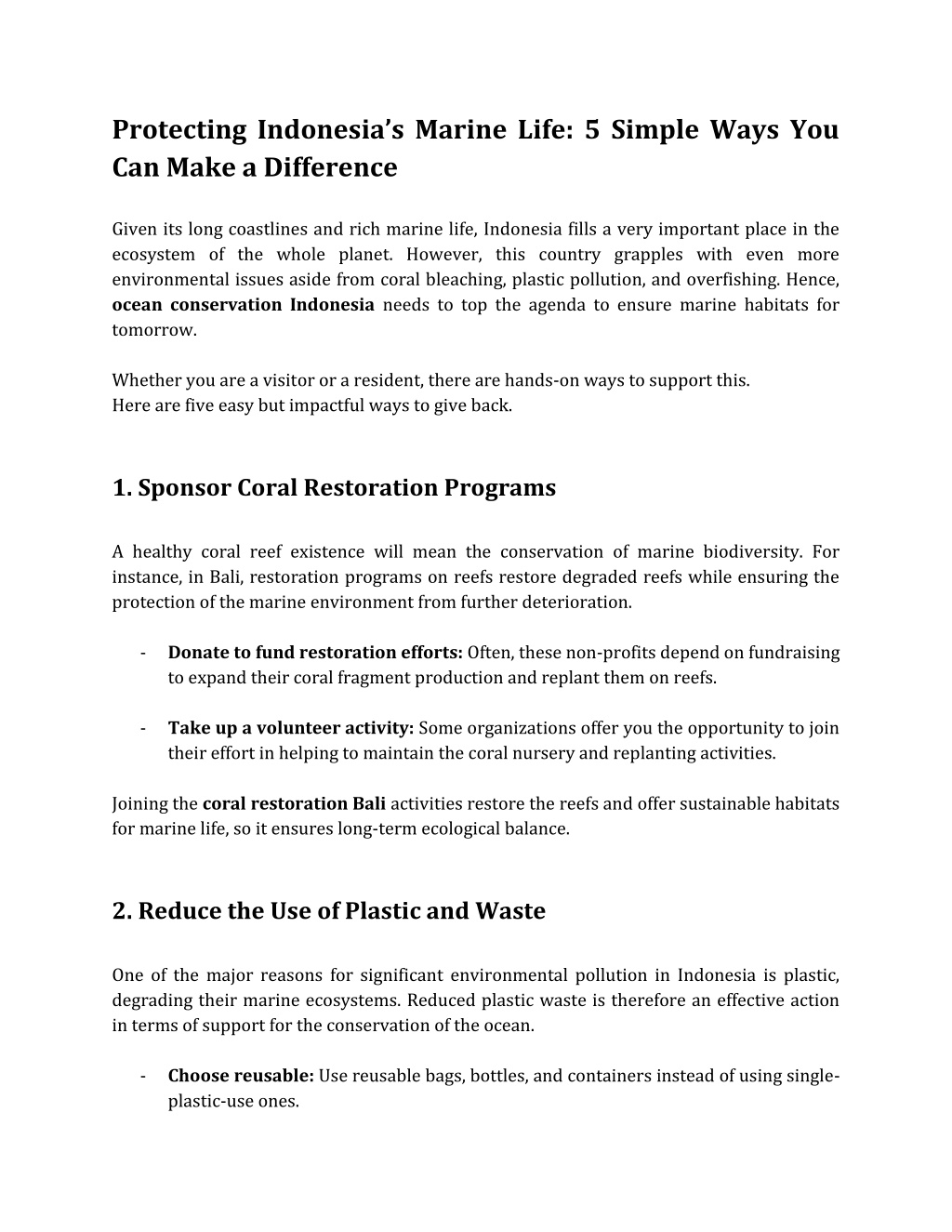
4. Protecting Indonesia’s Marine Life_ 5 Simple Ways You Can Make a Difference
Eco Hero Nusa runs a Marine project open for volunteers and internship from around the world. The idea is to hosts interns and help us on the marine ecologic program such as coral restoration, manta rays id, turtle id, and trash cleaning. Together we
Download Presentation

Please find below an Image/Link to download the presentation.
The content on the website is provided AS IS for your information and personal use only. It may not be sold, licensed, or shared on other websites without obtaining consent from the author. Download presentation by click this link. If you encounter any issues during the download, it is possible that the publisher has removed the file from their server.
E N D
Presentation Transcript
Protecting Indonesias Marine Life: 5 Simple Ways You Can Make a Difference Given its long coastlines and rich marine life, Indonesia fills a very important place in the ecosystem of the whole planet. However, this country grapples with even more environmental issues aside from coral bleaching, plastic pollution, and overfishing. Hence, ocean conservation Indonesia needs to top the agenda to ensure marine habitats for tomorrow. Whether you are a visitor or a resident, there are hands-on ways to support this. Here are five easy but impactful ways to give back. 1. Sponsor Coral Restoration Programs A healthy coral reef existence will mean the conservation of marine biodiversity. For instance, in Bali, restoration programs on reefs restore degraded reefs while ensuring the protection of the marine environment from further deterioration. -Donate to fund restoration efforts: Often, these non-profits depend on fundraising to expand their coral fragment production and replant them on reefs. -Take up a volunteer activity: Some organizations offer you the opportunity to join their effort in helping to maintain the coral nursery and replanting activities. Joining the coral restoration Bali activities restore the reefs and offer sustainable habitats for marine life, so it ensures long-term ecological balance. 2. Reduce the Use of Plastic and Waste One of the major reasons for significant environmental pollution in Indonesia is plastic, degrading their marine ecosystems. Reduced plastic waste is therefore an effective action in terms of support for the conservation of the ocean. -Choose reusable: Use reusable bags, bottles, and containers instead of using single- plastic-use ones.
-Join coastal clean-up: Engage yourself in local clean-up activities that eliminate harmful waste dumped along coastlines and prevent it from entering the ocean. -Dispose of garbage properly: Recycle using proper mechanisms that eliminate waste in landfills, and thus may find their way to water systems. Decreasing the use of plastics decreases pollution; therefore, marine animals will be able to live thrivingly. 3. Choose Sustainable Seafood Overfishing is destructive to Indonesia's marine world. One does make a world of difference in the marine ecosystem by choosing fish products that are produced sustainably. -Look for products with green certifications: MSC (Marine Stewardship Council) labels those food fish captured by companies able to comply with fish-finding standards in this sustainable manner. -Do not eat endangered species: Fish populations that are declining call for attention through the decline of unsustainable choices, such as certain reef fish. -Support local and sustainable fisheries: Indonesian fish come from regulated fisheries; therefore, a responsible fisheries practice is being implemented. The consumption of sustainable seafood will ensure the constant survival of species, but fishing in Indonesia will not collapse. 4. Reduce Your Carbon Footprint Climate change was directly related to the health of the ocean, such as sea temperature warming leading to coral bleaching. In this aspect, reducing personal carbon footprints is an indirect yet effective way to help Indonesia with ocean preservation.
-Ecotourism: While visiting places like Bali, take advantage of public transportation bike rides and join an eco-tour. -Reduce energy: Switch to appliances with power-saving properties and decrease consumption at home. -Offset carbon emissions: Fund carbon offset projects that restore mangrove forests or seagrass. This action reduces some of the effects of climate change, thus reducing the stress exerted on Indonesia's ocean. The Bottom Line Empowering education and advocacy implore more people to start participating in the best ways to preserve marine ecosystems. Collective responsibility has to be backed up in the restoration of corals in Bali, from minimizing plastic waste to choosing sustainably caught seafood-sourced food; these small actions will make all the difference in taking care of the nation's valuable marine resources.




